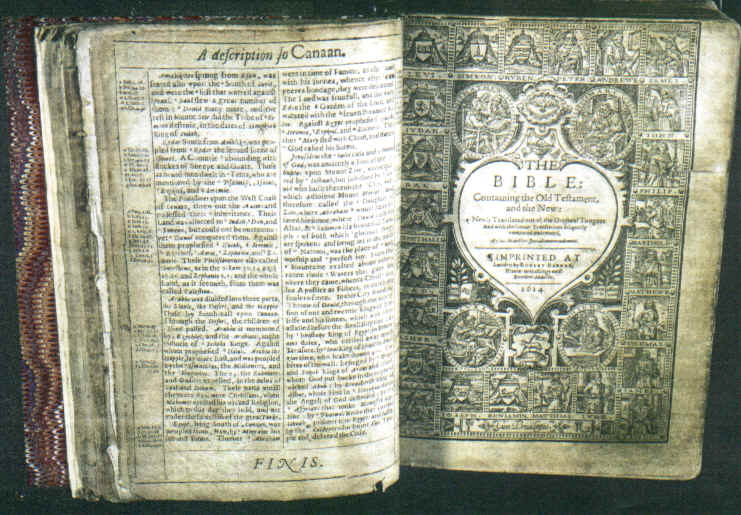A Sermon by the Rev. Dr. Arthur M. Suggs
Preached on Palm Sunday, March 25, 2018
Starting with Rousseau in Heaven with His Confessions; Ending with Core Principles.
This is Part VI of The Good Book sermon series, looking at different aspects of the Bible.
We did Bible 101, sort of an overview in Part I. Then came a sermon on A Hard Conversation: The Use and Abuse of the Bible in Part II, the Bible and Women in Part III, the Bible and Homosexuality in Part IV, and the Bible and Money in Part V.
Today I shall attempt the penultimate sermon in the series, Core Principles in the Bible, and the final sermon in the series will appear on Easter Sunday, Part VII, Fields and Meadows.
I’d like to start off today with comparing two brilliant men. One is from the 18th Century; the other is from the 20th Century.
In my comparison, I need to forewarn you that I will be using one inappropriate word. You will see later why I’m making this exception.
The first of the two brilliant men is Jean-Jacques Rousseau. In his final work, which he called Confessions, he imagines himself having “died and gone to heaven.”
But here is how this great and brilliant philosopher imagines the event: He approaches the heavenly gates with head held high, no bowing, no praise of God, no hint of fear. He has with him, of course, a copy of his Confessions, and as he enters through the pearly gates, all heaven turns toward him, setting aside their eternal praise of God to listen to Rousseau and hear his story.
Rousseau begins to speak to the heavenly host, with their attention no longer on God but on him.
“I have bared my secret soul as Thou thyself has seen it, Eternal Being! So let the numberless legion of my fellow men gather around me, and hear my confessions.”
He does mention them and what follows is what he calls his depravities, probably referring to any number of illegitimate children, all of whom he deserted.
“But let each of them reveal his heart at the foot of Thy throne with equal sincerity, and may any man who dares, say, ‘I was a better man than he.’ ”
Okay, so let us assume that good old Jean-Jacques Rousseau was an ego-secure fellow, having declared before the throne of God that no one who has ever lived was a better man than he.
Another Brilliant Person Is J.C. Becker in the Classroom with His Specialty, Apostle Paul.
Now let us compare Rousseau with another brilliant person.
Here I will choose the most intimidating professor I ever had. I mentioned him a few weeks back in another context. His name is Johan Christian Becker, a professor of New Testament at Princeton Theological Seminary.
I was recently reading an editorial by Michael Lindvall, pastor of Brick Presbyterian Church in New York City, and in it he described Becker, bringing back a flood of memories for me, and not only pleasant ones.
Here is his description, which is much better than I could ever do: ohan Christian Becker
“. . . was a riveting classroom lecturer, especially when the subject was the Apostle Paul. Paul was his specialty, and Becker had famously passionate convictions about the apostle. By the end of a lecture, Becker would have often ascended to a paroxysm of academic passion. He paced the dais in his classroom, his Dutch accent thickening as he became increasingly animated by some question of Pauline scholarship. He was convinced of his convictions and often rhetorically lacerated scholars who stubbornly held to what Becker considered patently absurd notions. He waved his arms and jabbed his index finger this way and that; his voice rose; his face reddened.”
(He never paid attention to the time, so every lecture would only begin to be concluded with the sound of the bell.)
“The sound of the bell drew Becker back to earth, and he would look out at the class and say in an even voice, ‘Then again, this may be all bullshit.’ ”
One scholar, Becker, knows full well that our grasp of truth, our deepest understandings, are all provisional. Our declaration of the truth should always be spelled with a small t. The other scholar, Rousseau, arrogantly throws down the gauntlet even in the presence of saints, angels, and God Himself.
My Question: What Are the Core Principles Found in the Bible?
Find out in the full version of Core Principles:
Download or view the PDF version of this Good Book (Part 4): Core Principles sermon.
Featured Image Credit: A small Bible printed by Robert Barker in 1614, belonging to St Mary’s Church, Datchet.

